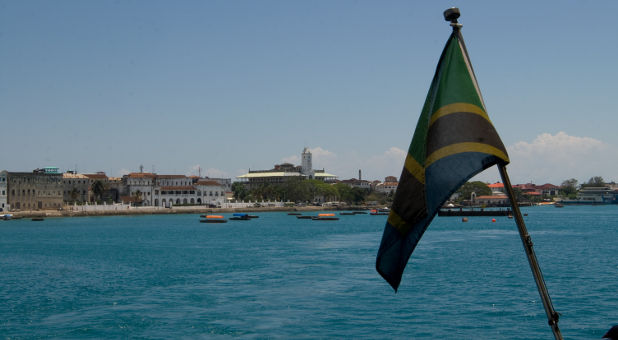Islamists Call Christian Churches ‘Dens of Nonbelievers’ Before Attacks
A series of bomb blasts in Tanzania’s island of Zanzibar is stoking fears that an Islamist breakaway movement is increasingly targeting Christians.
Since 2010, the cases have been on the increase and Christians and their leaders—many of them originally from mainland Tanzania—say they are anxious.
In the latest attack on Feb. 24, assailants exploded a homemade bomb near the gate of St. Monica Anglican Cathedral, slightly damaging the church wall and a car park. Anglican bishop Michael Hafidh of Zanzibar told World Watch Monitor at the time he did not know who had planned and executed the attack.
Also Feb. 24, a similar explosive went off at the Mercury restaurant, a popular hangout for western tourists. A day earlier, four people were injured when a bomb was thrown into the Assemblies of
God Church in the Founi area of the island. On Feb. 15, in the Tomondo area of the Island, a home-made bomb was thrown at the door of the Adventist Church during a worship service.
Hafidh said although this is not the first time the churches had been targeted, the recent series of explosions has left Christians feeling more scared.
“We don’t know the motive, but the police have said they are investigating. We think these are people opposed to the presence of Christians here,” he said in February.
Christians and Muslims have peacefully shared Zanzibar until 2010, when the Association of Islamic Mobilization and Propagation, a religious movement known as Jumuiya ya Uamsho na Miadhara ya Kiislam, or UAMSHO, began clamoring for Zanzibar’s autonomy.
UAMSHO registered in Zanzibar as a non-governmental organization in 2001. In its charter, it declared its aim of aim of establishing Zanzibar as a center of Islamic institutions under Islamic law and free from the United Republic of Tanganyika and Zanzibar, the official name of Tanzania.
In more recent years the campaign has taken on religious overtones. Clashes with police have ended with churches being burned and clerics being attacked. In February 2013, a Roman Catholic priest in the Zanzibar Diocese, Rev. Evaristus Mushi, was killed by unknown gunmen. His death followed a shooting two months earlier that left another priest, Rev. Ambrose Mkenda, badly injured.
Before Mushi’s killing, UAMSHO had circulated leaflets mentioning their youth training in Somalia, and threatening attacks.
“Our youth who went for training in Somalia have assured us that before we celebrate the birth of Prophet Mohammed, there will be other ‘celebrations’ about these infidels, that will be a big funeral for them,” said one undated leaflet, in Swahili, that circulated before the attack on Mushi.
The leaflets praised attacks on churches, referring to them as “dens of nonbelievers.” They also claimed the group had support from within the Zanzibari government of President Mohamed Shein. Christians on the island also received text messages warning them to leave the country or face death.
“The problem is the group is mixing calls for autonomy with religion,” said the Rev. Cosmas Shayo, a Catholic priest on Zanzibar. “They issues threat to Christians. They have attacked churches and clergy. We become more afraid when they circulate threatening leaflets.”
Added another Zanzibar priest, the Rev. Thomas Assenga: “We fear anything can happen anytime. Things are not easy here.”
In September 2013, Rev. Amselmo Mwang’amba, an elderly Catholic priest, was seriously injured when assailants splashed him with an acid. Mwang’amba, who headed the Roman Catholic Congregation of Cheju in the central district of the Island, was attacked as he walked out of a cyber café he frequented.
A month earlier, two British teenage girls, who had volunteered with a local church nursery school, suffered severe burns in a similar acid attack. Katie Gee and Kirstie Trup, had suffered burns of the chest, face and hands in the attack, which occurred as they walked in Stone Town, an old part of the island.
If UAMSHO wins independence for Zanzibar, it may alleviate political—but not religious—tensions, according to the Rev. Laurenti Magesa, a renowned Tanzanian Catholic theologian and scholar.
“Of course, the population of Zanzibar is predominantly Muslim, but there is a big percentage of Muslims in many regions of the mainland living alongside Christians,” he told World Watch Monitor.
Economically and socially, Zanzibar stands to lose if Christians leave the island, Magesa said. They provide much of the labor supporting the tourism industry.
“Other than the pride of political identity—‘We are a sovereign state’—I personally don’t see a genuine case for Zanzibar’s cessation,” he said.




























































